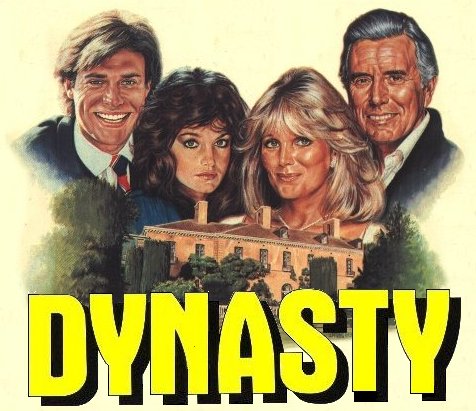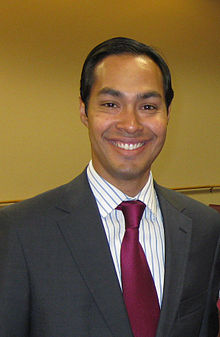It is 2013, right? So while we have the SD06 special election and the new legislative session to worry about, it’s not too early to start talking about the 2013 elections. Let’s start with a peek at the campaign finance reports from last July of the Houston officeholders who will be on the ballot this November:
Dist Name Cash on hand
=================================
Myr Parker 1,281,657
Ctrl R Green 9,983
AL 1 Costello 57,345
AL 2 Burks 3,160
AL 4 Bradford 20,590
AL 5 Christie 14,535
A Brown 22,641
B Davis 64,211
C Cohen 45,597
F Hoang 6,429
G Pennington 119,951
H Gonzalez 57,899
J Laster 31,816
K L Green 9,107
I omitted the three Council members who are term-limited out (Melissa Noriega, Wanda Adams, and James Rodriguez), as well as newly-elected Dave Martin, since his July report would not be relevant. Normally there would have been five open seats this year, but with Mike Sullivan stepping down due to his successful candidacy for Tax Assessor and Jolanda Jones losing in 2011, there are only three vacancies, and as such there will likely be a stampede for those seats. But we’ll get to that in a minute. Let’s take a closer look at where the non-term limited incumbents are.
Mayor
As we know, Mayor Parker will probably by challenged by former City Attorney Ben Hall, will possibly be challenged by her former Housing Director James Noteware, may possibly be challenged by some yet unknown candidate or candidates, and will certainly have a few fringe challengers as well. It could be quite the crowded race at the top of the ticket. While Hall would certainly be a more serious opponent in terms of money, resume, and presumed base of support than the 2011 hopefuls were, with Noteware and the others also possibly having more juice, I have believed for some time now that Parker starts out in a stronger position this year than she was in two years ago. The much-improved economy and real estate market mean that the city’s budget is far healthier than it was, which means the Mayor can do positive things rather than negative things like layoffs and service reductions. Distractions like red light cameras and Renew Houston are in the past, while the overwhelming passage of the city’s bond referenda gives the Mayor some wind at her back and a nice accomplishment with which to begin the year. Anything can happen, and we’ll see who if anyone else emerges to run against her, but I believe we will look back and say that 2011 was the better chance to beat her.
How would one go about defeating Mayor Parker if one were inclined to do so? The conventional wisdom is to aim to replicate the 1991 campaign, in which State Rep. Sylvester Turner and eventual winner Bob Lanier squeezed then-Mayor Kathy Whitmire into a third place finish. This is the vaunted “pincer strategy”, combining African-Americans and Republicans to shrink the remaining voter pool for the white Democratic lady Mayor. I’m skeptical of this. For one thing, Whitmire – who garnered an incredibly low 20% of the vote in that election – was running for her sixth term in those pre-term limits days, at a time when the term limits movement was gaining steam. There was a strong case for change, or at least there was a more restless electorate that was going through an economic downturn that year. Whitmire was also coming off a bruising defeat, as her $1.2 billion monorail proposal was killed by Metro’s board chairman, who was none other than Bob Lanier. Lanier promised to spend that money on roads, which was much more popular. There isn’t an issue right now that could be used as a cudgel against Parker, which makes the argument to fire her that much more challenging.
Which isn’t to say there aren’t issues to be used against Parker, but they’re not issues that I think are likely to be used effectively by an establishment insider like Hall, or any Republican who may file. Given that Hall is who he is, I think a more potent strategy would be to pair him with an outspoken liberal, who can compete with Parker’s base voters in District C by attacking her for things like the homeless feeding ordinance, the lack of any effort to advance equality in Houston, and the Metro referendum if one believes the University Line is mortally wounded. Quantifying the irony of Whitmire losing for promoting a rail plan, and Parker losing for being perceived as insufficiently supportive of rail, is left as an exercise for the reader.
And as long as I’m giving out advice, my suggestion to Team Annise is to work on building its ground game and seeking to increase turnout. There were 160K ballots cast in the 2009 runoff, but only 123K in 2011. Neither of these are particularly high totals for a city election – indeed, the 2011 total failed to reach the puny 125K ballots cast in the sleepy 2007 election. There are plenty of people who have voted in city elections, certainly as recently as 2003, but haven’t done so in the past few cycles. I rather doubt that Parker versus Hall et al is likely on its own to draw any more voters than Parker/Locke/Brown/Morales did in 2009 (181K, in case you’re curious), but there’s no reason Parker shouldn’t be working to identify and bring out voters who have a less consistent history of voting in city elections. I think that offers a better path to 50% plus one than another dreary exercise in talking to only the same old hardcore voters. You know, like me. She has plenty of money, she’ll have plenty more after the curtain comes up on fundraising season. Target a bigger universe, I say.
Controller
I’m wondering if Ronald Green has a typo in his finance report. He reported $46K on hand last January, then his July report showed that he raised $26K and spent $13K, so I have no idea he could have had only $9,983 on hand. I guess we’ll see what this January’s report says. Beyond that, not much to see here. He’s still not a big fundraiser, and he still has no credible announced opposition despite his recent negative press.
Council At Large
Is it just me, or are those some anemic cash on hand totals? Six out of eight district Council members have larger campaign treasuries than three of the four At Large members. Bradford often reports a lot of in kind contributions – he has listed some things we might normally think of as expenditures as in kind contributions – which tends to reduce his COH figure. Burks, who raised $35K but had $34K in expenses, paid off a number of debts, including the $10K loan from his wife and two items dating from the 2009 campaign that totaled $4650. Christie also spent nearly as much as he raised – $66K raised, $63K in expenditures. This included $45K for “printing”, which I presume was a deferred expense from his runoff campaign.
As was the case in 2011, there’s only one open At Large seat, At Large #3, so once again I expect a cattle call in that race. I know Jenifer Pool, who ran in At Large #2 in 2011, is in for AL3 this year, and other names will surely emerge in the next few weeks. I have to think that it would be worthwhile for a Council wannabe who might be concerned about getting lost in that shuffle to consider taking on one of the incumbents instead, specifically Burks or Christie. Burks’ winning campaign in 2011 after however many previous tries was, to put it gently, atypical. The only policy item I can recall that he originated last year was a proposal to revamp Houston’s term limits ordinance, which never made it out of committee. He also drew scorn for suggesting that the propane tanks used by food trucks might potentially be used as weapons by terrorists. He doesn’t have much money, doesn’t have a history of fundraising, has generally run do-it-yourself campaigns, and his main asset is the name recognition that a dozen or more previous campaigns has earned him. You can make a similar case for Christie, who made an interesting proposal relating to shelters for homeless people that as far as I know went nowhere and who also said silly things during the food truck debate. Unlike Burks, Christie has been and should continue to be a good fundraiser, but also unlike Burks he has no natural constituency – he’s a moderate Republican who isn’t beloved by county GOP insiders. His win in 2011 could also reasonably be described as out of the ordinary. I’m not saying either would be easy to beat this year, I’m not even saying someone should run against them. I’m just suggesting that a multi-candidate open seat race where getting to the runoff is more crapshoot than anything else doesn’t necessarily offer the best odds of being sworn in next January.
District Council
Just so you know, former Council Member Brenda Stardig reported $26,574 on hand in July. If she aims for a rematch with Helena Brown, she starts out at parity in the money department. I’m not sure what’s up with CMs Hoang and Green, but I don’t expect either of them to have much difficulty this year. Everyone will be watching District A, probably even more than the two open seats, but I’d keep an eye on Jerry Davis in District B as well. Davis has worked hard, but doesn’t appear to have won over the insiders in the district, being a new resident of B himself. It would not shock me if he gets a serious opponent. Beyond that, Dwight Boykins appears to be in for the open seat in District D, and while other names will soon emerge we may have to get a judge’s opinion about whether Jolanda Jones can be among them. There are already two candidates for District I; if history holds, there likely won’t be too many more.
HISD and HCC
It’s a bit confusing because the County Clerk webpage doesn’t track uncontested Trustee races, but I’m pretty sure that the following people are up for election:
For HISD Trustee: Mike Lunceford, Anna Eastman, Greg Meyers, Lawrence Marshall, and Harvin Moore. Lunceford and Eastman are finishing their first terms; Moore and Meyers were unopposed in 2009; Marshall won in a runoff. I have not heard anything so far to indicate that any of them are not running for re-election. If Anna Eastman runs for and wins re-election she will be the first Trustee in District I to do so since at least 1997 – I can’t check any farther back than that. Gabe Vasquez was elected that year, followed by Karla Cisneros in 2001, Natasha Kamrani in 2005, and Eastman in 2009.
For HCC Trustee: Mary Ann Perez’s election to the Lege in HD144 means there will be a vacancy in HCC Trustee District III. The Board has appointed former Trustee Herlinda Garcia to replace her. Garcia, about whom you can learn more here, will need to run in a special election to be able to serve the remainder of Perez’s term, which expires in 2015. The three Trustees whose terms are up this year are Bruce Austin, Neeta Sane, whose district includes a piece of Fort Bend County, and Yolanda Navarro Flores. It’s fair to say that Trustee Navarro Flores’ current term in office has been rather eventful. She won a close race last time, and if she runs again I would expect her to get a strong challenger. Sane is completing her first term, while Austin, the longest-serving Trustee, was first elected in 1989. I am pleased to note that this year the Trustee candidates’ campaign finance statements are now available online. Sometimes, a little bitching and moaning goes a long way.
That’s all I’ve got for now. January finance reports are due next week, and a few will probably trickle in early. I’ll keep an eye out and will post a report when they’re all up, or at least at some point after they’re all supposed to be when I’ve run out of patience waiting for them. I’ll throw in the reports for County officeholders who are up in 2014 as well, just because. Please add your own speculation and rumormongering about who is or isn’t running for what in the comments.






















